Positive relationships are one of the strongest indicators of a fulfilled, happy life. Social Emotional Learning (SEL) is a core part of our holistic approach, equipping students with essential life skills to thrive both in and out of the classroom. At the American International School of Cape Town (AISCT), we recognize that learning goes beyond academics. Students must learn to navigate and express their emotions to build positive relationships. Developing the ability to identify, accept, and share feelings—as well as practicing healthy social and communication skills—are key components of a successful learning experience.

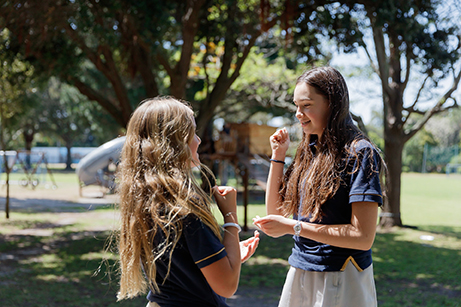
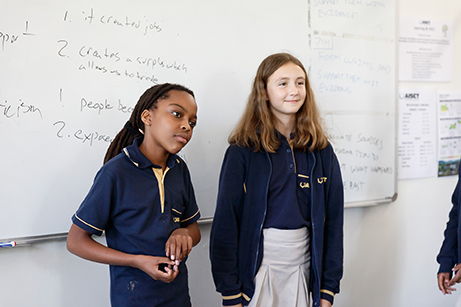
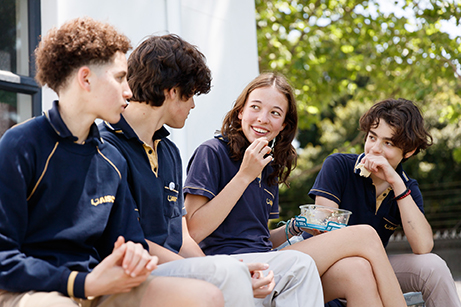
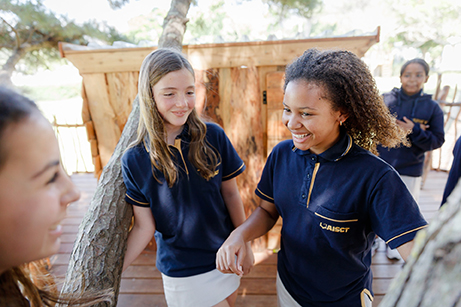
What Is Social Emotional Learning?
SEL is a developmental process that helps students of all ages manage emotions, set goals, build positive relationships, and make responsible decisions. It promotes emotional intelligence, empathy, and resilience — skills that are crucial for success in today’s world.
SEL helps people learn and apply skills to support healthy relationships and development. When educators talk about Social Emotional Learning, they ask key questions: Can students adequately manage and express their emotions? Do they have a healthy sense of identity and belonging? Are they able to form and keep positive relationships? Are they empathetic, good listeners, and authentic communicators?
Cultivating these skills and helping students navigate the range of emotions they experience as they grow, develop, and become young adults is essential in ensuring their academic growth and fulfillment later in life.
Developing SEL at School and at Home
At AISCT, we understand that Social Emotional Learning (SEL) is most effective when reinforced at school and at home. As an American international school, AISCT teachers offer a structured environment where students from all cultures, languages, and backgrounds can practice SEL through group work, guided discussions, and reflection exercises.
While our teachers intentionally focus on this area, much of this learning happens at home and with friends and family outside the classroom. We encourage families to discuss emotions, empathy, and problem-solving at home. Simple activities like discussing daily highs and lows or modeling healthy communication can significantly strengthen the SEL skills learned at school.
AISCT works with families to ensure that students receive the support they need to grow into well-rounded, emotionally intelligent individuals. Our counselors at AISCT give some tips here below on fostering social-emotional awareness and learning at home:
Tips for Talking to Your Child and Improving Communication
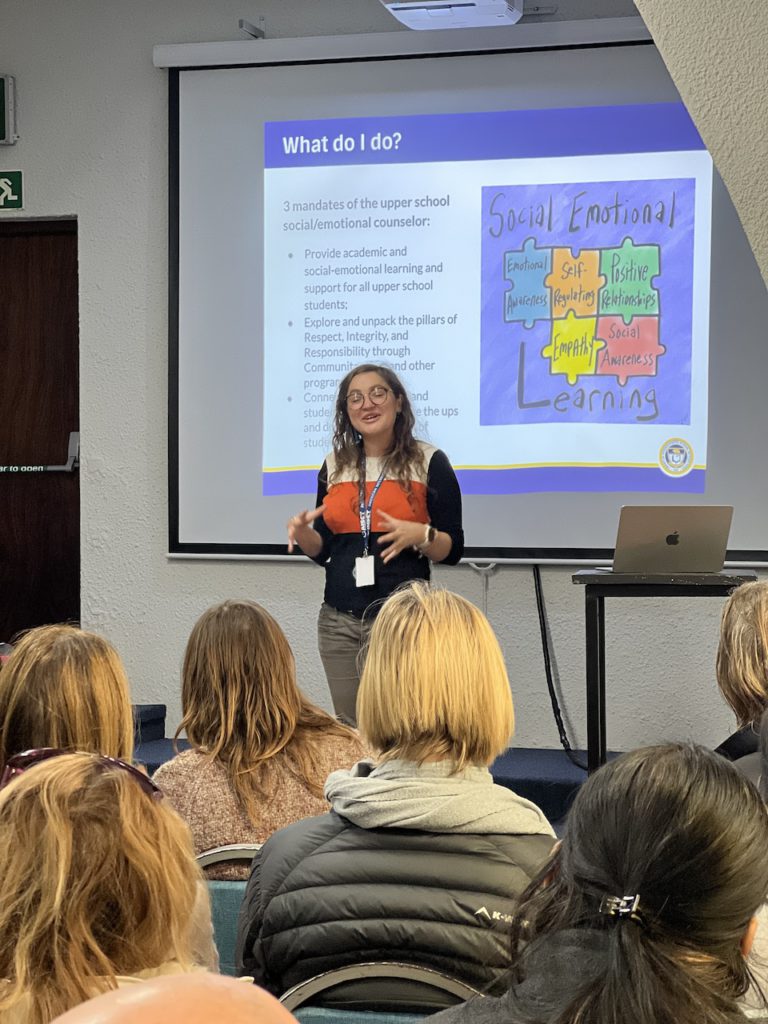 It can be challenging to talk about our emotions and encourage our children to share theirs. Here are a few things you can try:
It can be challenging to talk about our emotions and encourage our children to share theirs. Here are a few things you can try:
- Make time for talking: We all get wrapped up in our busy days, but having consistent time for organic sharing and talking can offer the space your child needs to share easily.
- Try not to judge: For open and honest communication to take place, children need to feel free from judgment. Although we may want to reprimand our children for their choices, there is a time for talking and a time for guidance. Approaching the conversation with openness can make sharing much more likely.
- Remember, sharing makes us vulnerable: When your children share their emotions with you, remember they feel extra vulnerable in that moment. Try to avoid joking with them or teasing them about how they feel, even if it seems trivial to you.
- Model behavior: Talking openly and positively about your own emotions and feelings models good communication skills for your child, which they can then mirror.
How AISCT Counselors Support Emotional and Mental Health
At AISCT, our counselors play a pivotal role in our students’ social-emotional development and are available to support them throughout the school day. They work closely with students and parents to address individual challenges, helping our students navigate personal, academic, and social challenges.
In addition to addressing individual needs, our counselors also meet with students collectively in large groups or with their classes to teach them about Social Emotional Learning skills. Our international school counselors are always there to help students thrive both inside and outside the classroom.
If you are interested in learning more about SEL or are concerned about your child’s emotional or mental health or learning progress, you can contact your child’s teacher and/or counselors. Click here to learn more about AISCT counseling support and our Social Emotional Learning programs.











